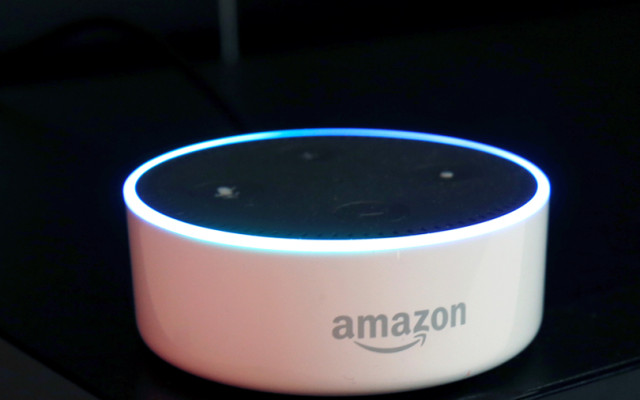
Amazon is targeting brands to power Alexa’s growth in India


Alexa, the smart voice assistant that powers Amazon’s Echo smart speakers, can check the weather, play music and even keep kids busy with rhymes and quizzes. The Seattle-based e-tailing giant now wants to go a step further in India and get brands and enterprises to partner with its voice-based search engine.
Alexa’s first-mover advantage in India and evangelisation by Amazon has seen multiple brands opting to create voice products. The company, which periodically hosts training programmes to create conversation-based applications or ‘skills’ on the Alexa platform, has grown the number of developers from less than 10,000 to 40,000 in just a year of its presence in the country.
“We conduct webinars, training at co-working spaces, institutes, in metro cities and beyond,” says Dilip RS, country manager for Alexa Skills in India. "India is our second-largest market for skills after the US in 12 months. We do not restrict developers but most of them make skills for the Indian user."

The total number of skills on Alexa has doubled over the past year to 20,000.
As part of its enterprise strategy for Alexa, Amazon has allowed independent developers, young professionals and students to create skills on the platform.
“Our first job is to educate brands on why they need to build for voice. Once they are convinced, our in-house team helps them build a good voice interface. Here, you are reimagining how the customer interacts with voice,” says Dilip.

His team reaches out to brands and enterprises and helps their technology teams develop skills or connects them to trained agencies which can build the workflow for them. Based on the criteria of having developed a set number of skills on the Alexa platform, Amazon has listed five partners for India, including IT services company Mphasis and Tata Consultancy Services. Amazon provides them training and helps them create the best possible voice user interface.
Recently, IndusInd Bank released its IndusAssist skill on Alexa which allows customers to conduct banking operations using voice on the device. Similarly, insurance companies, lifestyle brands, apart from service providers like online travel and ticketing portals, are increasingly signing on to the platform.
Race to capture market share

In the US, Amazon’s Echo has two-thirds market share for smart speakers, according to data shared by research firm eMarketer. Close to 90 million consumers use smart speakers across Amazon’s Echo and Google Home, among others.
In India, the number of users owning Echo devices might be limited as of now, but the use of voice commands for interaction and access to the internet is imminent. The focus on the next billion internet users in India, who will use the web mostly in local languages, will also see increased use of voice queries which will need a smart assistant to provide answers. In December 2017, Google India said that 28% of its search queries come through voice in the country.
These numbers point to a rush to capture market where an Indian internet user generates a voice query and a brand can respond to it in time. This can be across smart devices, connected appliances like refrigerators, air-conditioners, set-top boxes or on the phone.

Agrahyah Technologies, which is one of Alexa India’s partner agencies, has developed an app called Alexa on Phone which allows users to use the voice assistant while on the go. Amazon already has an Alexa app which works on Android phones. “With the help of Amazon, we have developed the product which is in public beta," says Sreeraman Thiagrajan, co-founder of Agrahyah. "The idea is to order products on the Amazon marketplace which you remember while on the go, through your Amazon account using voice. This is delivered by the time you get home.”
This shows that Alexa is trying to close the loop in voice interaction from home to on-the-move, as are Amazon’s competitors Google Assistant and Microsoft Cortana.
Agency partnerships

Much like the Android developer ecosystem, Amazon wants Alexa to be the go-to voice assistant for customers. The company has been encouraging developers to publish skills as part of their training and has conducted five Alexa Developer Day programmes across cities.
The partner agencies though are responsible for convincing brands and enterprises to take voice-based marketing seriously and help them design the interface.
“Some skills that brands need can be basic. Others need to design relevant content around it. For example, an Echo customer is relevant for insurance companies. We design relevant content around the need for a certain type of insurance product in the form of a podcast with questions and answers from an expert in the field,” says Thiagrajan. Often the agency has to hire a studio to generate exclusive content around the brand.

He adds that the services from an agency, which develops the user interface and the content, come for a premium depending on the depth of the skill being designed.
While it is the job of these agency partners to convince brands and enterprises to set aside a budget for voice-based marketing, some sectors have been particularly responsive in taking this up. According to Thiagrajan, the banking, financial services and insurance (BFSI) sector has been quick to adopt to this, followed by interest from content developers for children and lifestyle companies, among others.
End goal
“We want brands to create access for users, and for that, they just need to sign up with our developer ecosystem,” says Dilip from the Alexa Skills team. He adds that in the long run, the company plans to ‘voicify’ intent.
While Alexa allows advertising in some product categories such as ordering products and services or audio messaging for promotional offers as well as allowing in-app purchases for games developed by independent developers in the US, Alexa still has a long way to go in occupying the mindshare of brands.
In the meantime, it will have to brace for local competition from Flipkart-owned Liv.ai and Google Assistant in voice-based searches.
